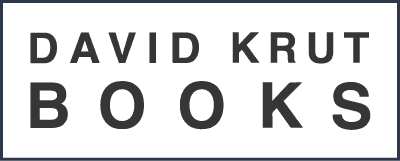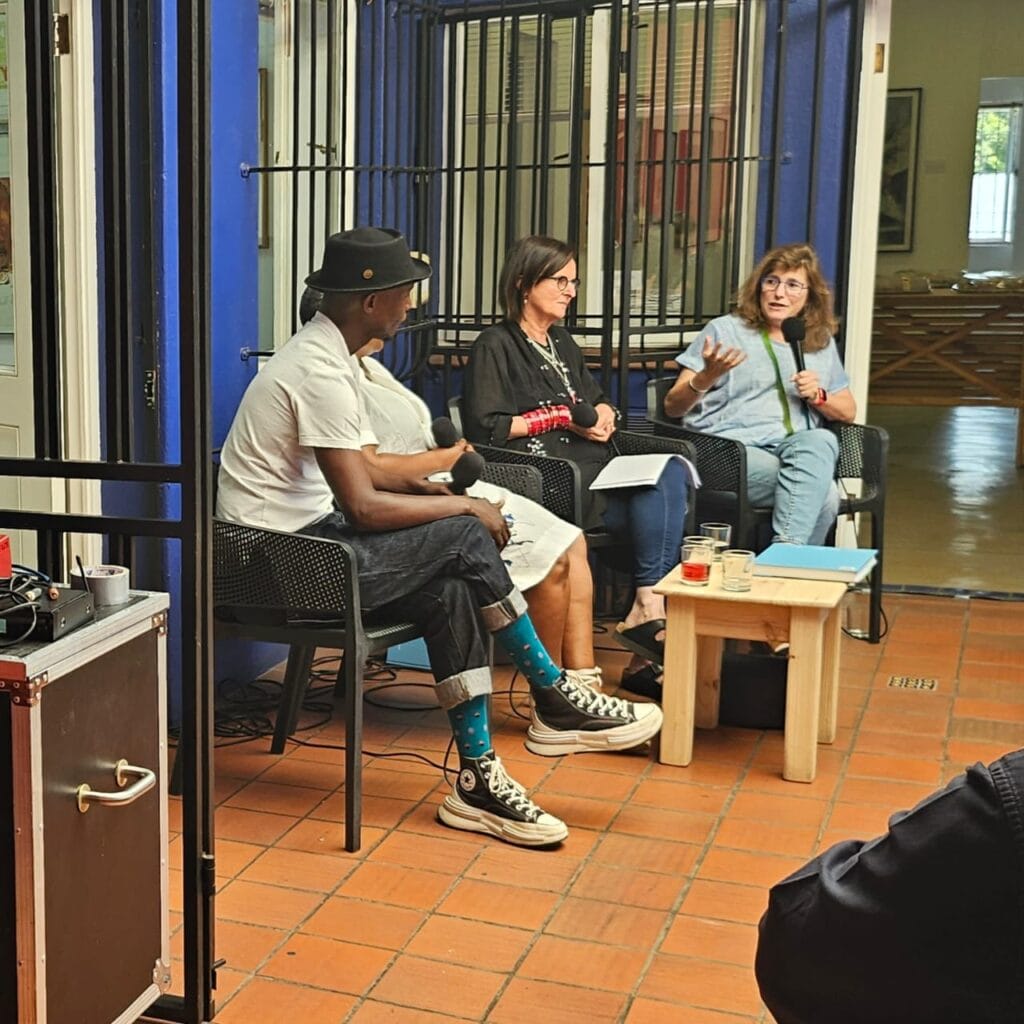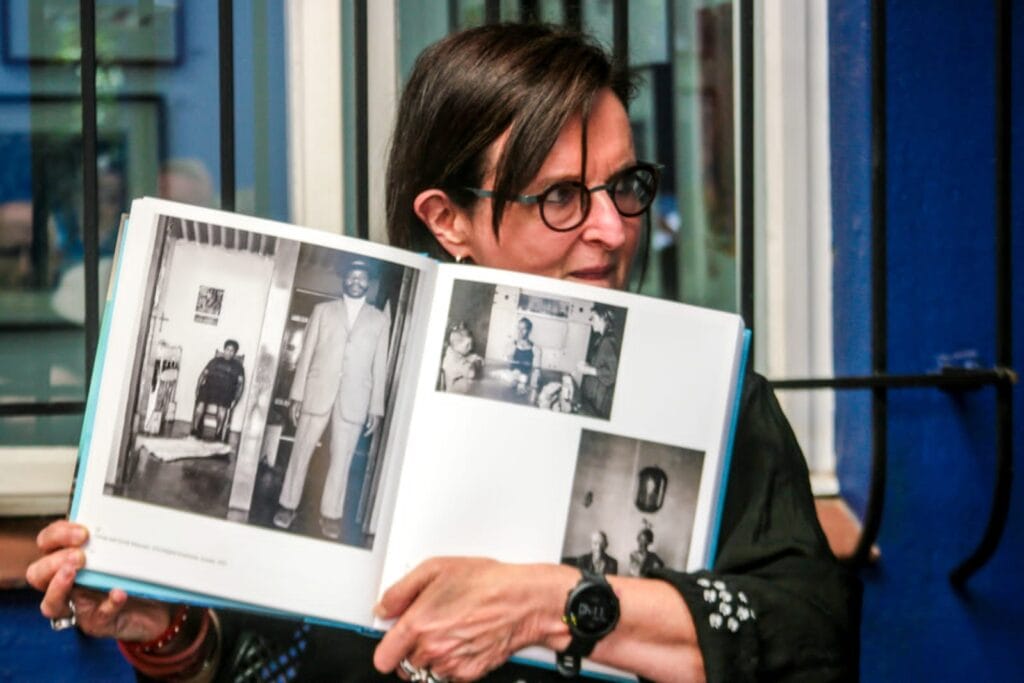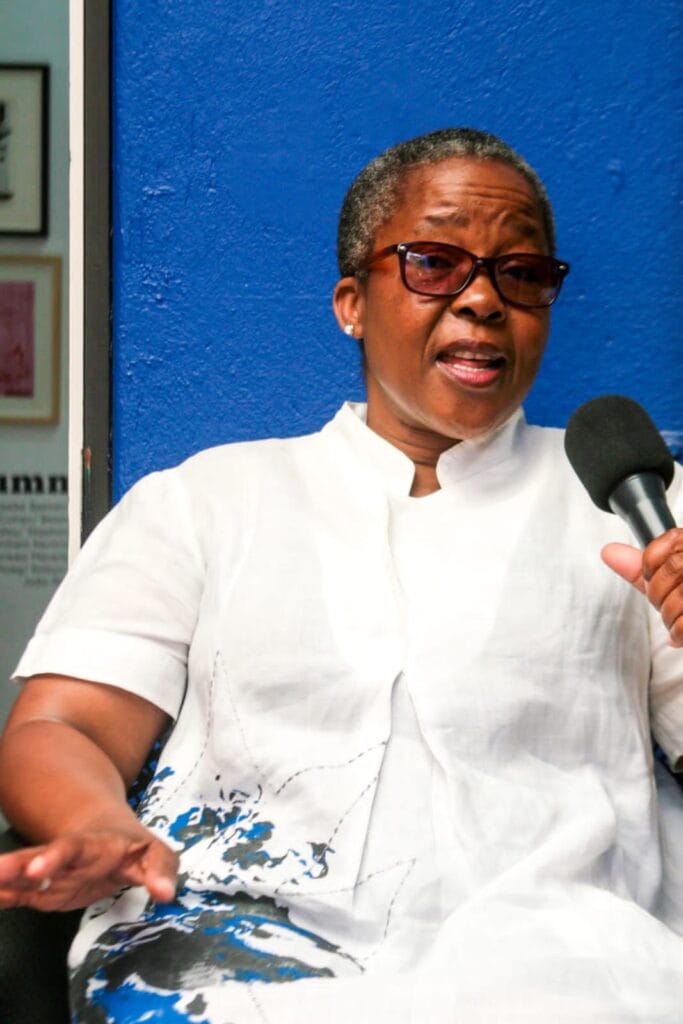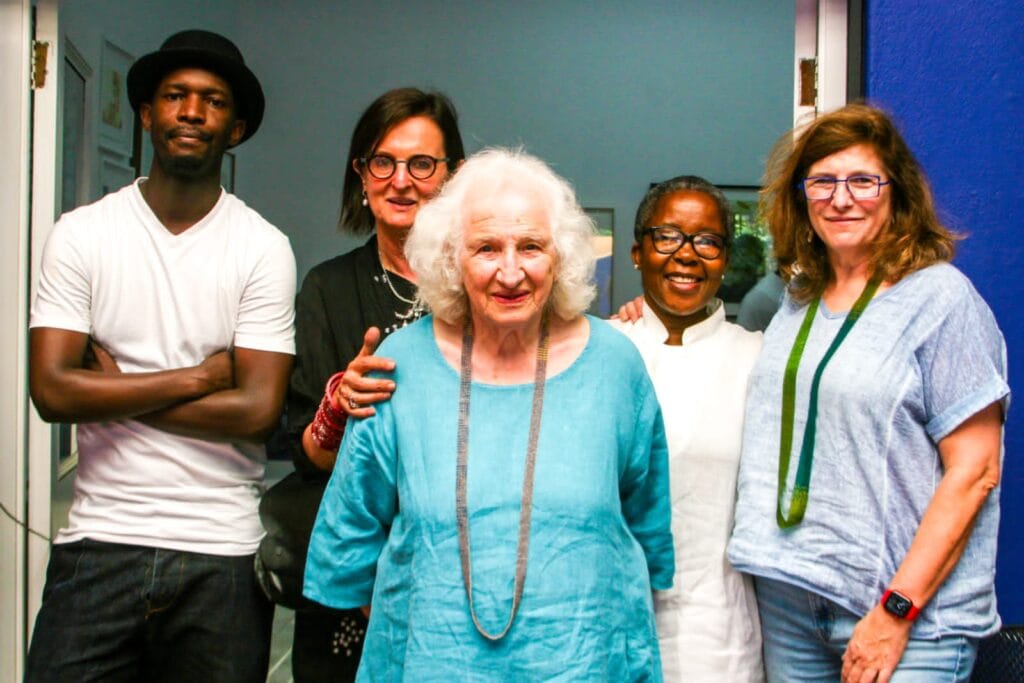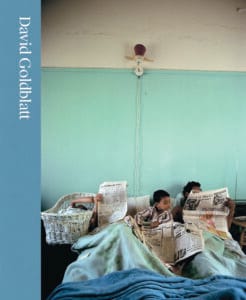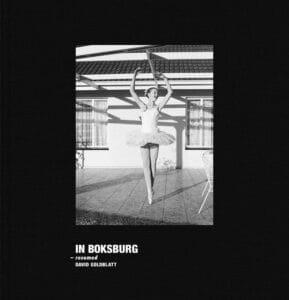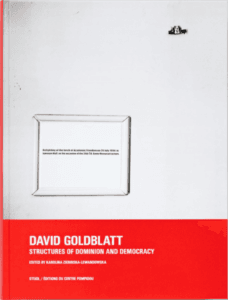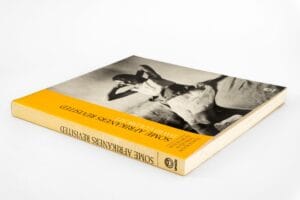Book Launch Recap | David Goldblatt: No Ulterior Motive
On the 3rd of February David Krut Books was honoured to host the book launch of David Goldblatt: No Ulterior Motive. Published by Yale University Press, the book serves as a catalogue accompanying a major traveling exhibition of Goldblatt’s work. Goldblatt was one of South Africa’s most prolific photographers, working primarily in the field of documentary photography. Throughout his career, he focused on depicting the complex nature of South Africa’s political and social life.
Along with Jonathan Ball Publishers, we invited people to join us for a panel discussion about Goldblatt’s work, life, and legacy. Joining us for the panel were photographer’s Terry Kurgan, Ruth Motau and Andile Bhala, as well as David Goldblatt’s daughter, Brenda Goldblatt. A Cape Town-born artist and writer Kurgan’s photographic work looks at how and why a photograph came to be made, and how its meaning continues to affect those who now receive and view it. She is best known for her documentation of South African social and political life. Her work primarily focuses on the diverse activities present in the communities where she has lived and is featured alongside Goldblatt’s in the exhibition. Based in Soweto, Bhala captures most of his photo in Soweto and Joburg’s Business Distract. His work aims to capture the duality and contrasts of life in South Africa. Brenda Goldblatt has worked as an editor on a number of her father’s books, including David Goldblatt: The Last Interview and Ex Offenders At the Scene of the Crime. She remains the foremost expert on her father’s work and beliefs.
The discussion opened with Terry Kurgan, the moderator, highlighting the significance of books in David Goldblatt’s career, noting that they were integral to his practice, just like his exhibitions. Terry shared personal experiences of working with David, emphasising his meticulous attention to detail in every aspect of book production. “David needed to look at the paper quality, the image quality, the particular quality of the reproduction of his own work, attribution, caption accuracy, and more. I would quake in my boots knowing full well just how high the bar always was.”
It was highlighted by Terry that the publishers’ goal in editing No Ulterior Motive was to place Goldblatt’s works in dialogue with each other, creating a productive tension and opening new spaces for dialogue around his photographs. Terry went on to described this as an “extremely unfamiliar David Goldblatt experience.” Having worked so closely with Goldblatt, Terry found this decision to be quite jarring, but after reading Njabula Ndebele text, and more from the editors, essayists, and peer photographers in a book, she began to appreciate the fresh, interpretive reading and the tribute the book pays to the photography community that Goldblatt both emerged from and helped create.
From there the discussion moved to the ethical responsibilities of photographers. The panel delved into the ethical considerations of photography, particularly in portraying marginalised communities. Goldblatt’s approach of respecting his subjects and ensuring their voices were heard was praised, setting a standard for responsible photographic practice.
Andile Bhala emphasized the importance of spending time with subjects and respecting their stories, saying that “these are real stories with real layers… we can’t just wake up and call people subjects.”
While Ruth Matau spoke about David Goldblatt’s influence on her work, particularly his disciplined approach to photography, “he would tell you if the sun was too harsh, just wait for the right moment. He would wait for hours just to take the picture that he wants. And sometimes you’d ask, and he will tell you how a particular photograph was taken, maybe close to four or five frames, but you hear it’s like nine hours… that discipline, was instilled in us as photographers.”
Matau also touched on Goldblatt’s insistence on respecting the autonomy of his subjects; she said I “have that image [and] it’s because of them accepting me to be in their space, and I need to protect them and also protect myself”.
 Andile Bhala (Photo: Jacob Mawela)
Andile Bhala (Photo: Jacob Mawela) Ruth Motau (Photo: Jacob Mawela)
Ruth Motau (Photo: Jacob Mawela) Brenda Golblatt (Photo: Jacob Mawela)
Brenda Golblatt (Photo: Jacob Mawela)
Brenda Goldblatt added that, despite Goldblatt being white, he sought access to black environments and encouraged black photographers to capture white environments.
The event concluded with reflections on David Goldblatt’s lasting impact on photography, with panellists acknowledging his commitment to portraying the complexities of South African life with empathy and honesty. Brenda highlighted her dad’s insistence on not allowing his photographs to be used for purposes other than what was agreed upon with his subjects, emphasising his respect for their agency.
In summary, the David Goldblatt Launch event provided a deep dive into the life and work of a photography legend, highlighting his ethical approach, meticulous craftsmanship, and enduring influence on contemporary photographers. The event served as a fitting tribute to David Goldblatt’s legacy, showcasing the power of photography to provoke thought, inspire change, and preserve history.
David Krut books would like to thank Jonathan Ball Publishers for the opportunity to host such a wonderful event. We would also like to thank Terry, Brenda, Ruth and Andile for lending us their time and insight, and for sharing their memories of David Goldblatt with us. Finally, we would also like to thank the people who came to the launch, making it a truly special day.
Curios about what was discussed? Listen to the recording here!
